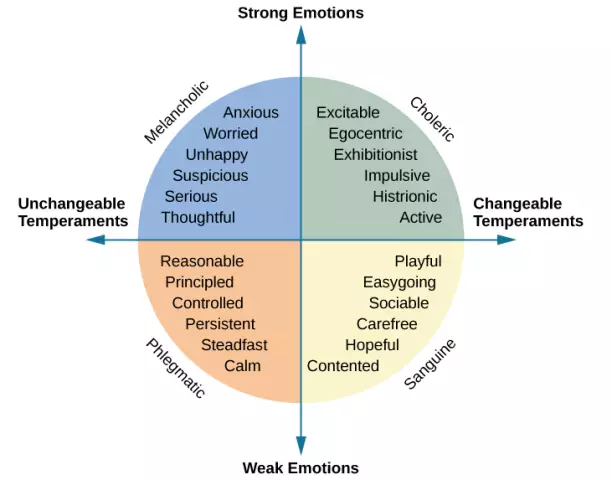- Author Rachel Wainwright [email protected].
- Public 2023-12-15 07:39.
- Last modified 2025-11-02 20:14.
The relationship between parents and children

The relationship between parents and children is a complex system of relationships, the subject of study of the psychology of parenting, the purpose of which is to determine the mechanisms for the development of bonds between parents and children, the mutual influence of generations on each other, as well as the prevention of psychological problems of mutual understanding between parents and children. Difficulties in parent-child relationships are the most common reason families turn to psychologists. The modern institution of the family is in crisis. The instability of family relations, the loss of the ability and desire to raise a child properly is determined by a number of external and internal factors. What factors influence the relationship between parents and children? What are the main mistakes modern parents make that critically affect the formation of the child's personality?
The relationship between parents and children: general theoretical concepts and relationships
There is not a single psychological theory that allows you to build the ideal relationship between parents and children due to the individuality of the characters of each of the participants in the system, circumstances, external and internal factors. It is impossible to build ideal human relationships according to a certain model, however, studying the psychology of parenting, comprehending the theoretical foundations of the relationship between parents and children, you can avoid many mistakes.
Parenting is a manifestation of the parental instinct in a person of a behavioral, emotional and social nature. Conscious parenting is based on the unconscious reproductive instinct, as well as on social norms, according to which the family is the basic unit of society and is characterized by the union of a man and a woman, a common life, a desire to give birth, upbringing and socialization of children.
For a child, the family is the main habitat, development and psychological formation. It is in the family during early childhood that the child comprehends the basic models of social relationships (including the relationship between parents and children on the example of the relationship between parents and the older generation). Childhood is the main period of human development, when he learns to cognize the world, comprehends the basic mechanisms of cognition, the foundations of relationships between people. Psychologists believe that it is in childhood that the basic skills and abilities are laid, the psychological qualities of a person's character, which he only develops throughout his subsequent life.
The institution of the family is extremely important for the child, since the period of childhood is characterized by partial isolation from society. Parents for a child are the main source of comprehension of human relations.
The formation of a child's personality is influenced not only by the relationship of his parents to the child himself, but also by the relationship of the parents with each other. So, if the child receives enough attention from the father and mother, both parents take an equally active part in his upbringing, the child is surrounded by care and love, but tensions arise between the parents themselves, then this situation will be reflected in the child's later life.
The atmosphere of the family can influence the child in two dimensions: his personal development (psychological problems, internal contradictions, complexes, fears), the formation of his relationships in society (gravitation towards loneliness in order to avoid relationship problems). This influence can manifest itself both in early childhood (preschool, school age), and in a more mature age at the time of creating your own family or deliberately refusing to create your own family. It is impossible to accurately predict at what stage of the child's development the effect of the unhealthy atmosphere of the family in which the child grew up and was raised will appear. However, it can be unequivocally stated that an unhealthy family atmosphere, complex relationships between parents and children will be reflected in the child's future life.
It is false to believe that the child does not perceive the relationship of adults, that he is not given to understand most of the problems of adulthood. As a rule, the child is more susceptible not to situations, conflicts, objects, circumstances, but to the emotional background that accompanies this or that situation in his life.
It should be understood that a child is a kind of imitator, he adopts the foundations of his character, behavior, attitude towards people from his parents, moreover, starting to comprehend the basics of relationships from infancy (tone of voice in a conversation with certain family members, clear models of behavior in certain situations). As a result, by the age of consciousness, when the child displays the first personality traits, parents are faced with nothing more than the quintessence of their own character traits, manners and styles of behavior.
The relationship between parents and children: the main mistakes of generations
The relationship between parents and children is largely determined by external factors, which include material well-being, living conditions, and the social status of the family. The internal factors that determine the relationship between parents and children include the culture and upbringing of parents, spirituality and morality, awareness of the spiritual value of the family, marriage, relations between loved ones. The relationship between parents and children is largely determined by the family's lifestyle, well-being and prosperity, a sense of calm and confidence, the security of each family member, his desire to support and develop the family.
In many ways, the relationship between generations is determined by mutual understanding between parents and children, which should be based on loyalty and tolerance to the needs of others. The main mistakes made by adults in the relationship between parents and children boil down to the fact that in most cases, parents transfer resentments, contradictions, conflicts that they experienced during their childhood, into the plane of new family relationships.

The use of the experience of past relationships and generations is not a contraindication to building new connections, but in most situations psychologists are faced with the problem of unconsciously copying the behavior patterns of their parents, repeating their mistakes, which affects the freedom of each participant in the relationship, infringement of his interests, the formation of an obviously unhealthy attitude towards institute of family in children.
Parents and Children: Psychology of Relationships in Practice
Relationship psychology will not tell you how to build the right relationship between parents and children, but this science will allow you to study the main mistakes of generations and avoid them in practice. The main rule that parents need to realize refers to the individuality of each situation and each participant in family relationships, which allows us to argue that blindly following generally accepted models of behavior in the development of relationships and mutual understanding between parents and children may not only be ineffective in a particular case, but also significantly aggravate situation. In the matter of parents and children, the psychology of relationships offers only an individual approach, which takes into account the interests of all parties.
YouTube video related to the article:
Found a mistake in the text? Select it and press Ctrl + Enter.






